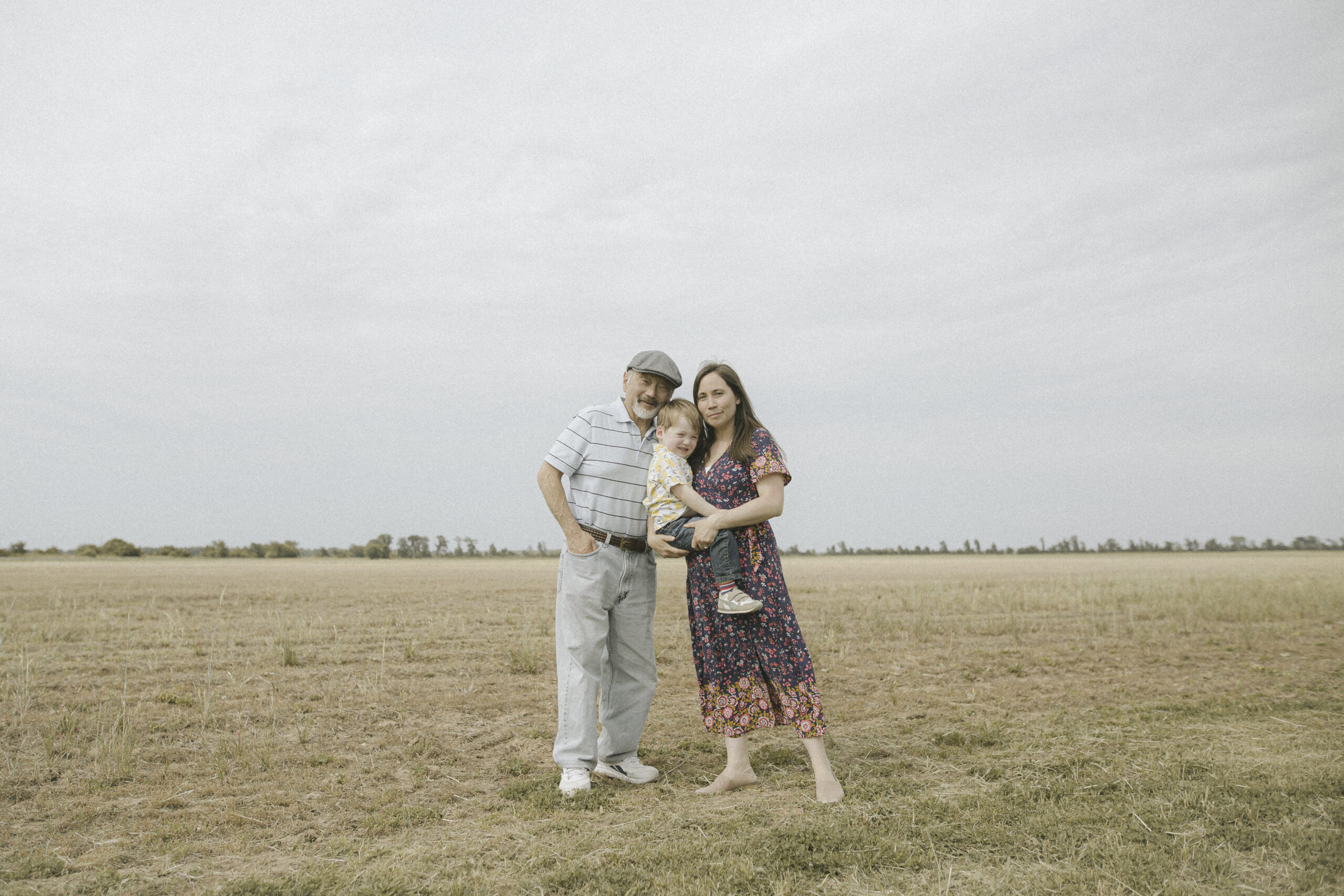“Something that was really important to them was owning real estate. […] To be able to own property was a sign that they were American.”
— Kimberly Ikuta Mendoza, on her grandparents
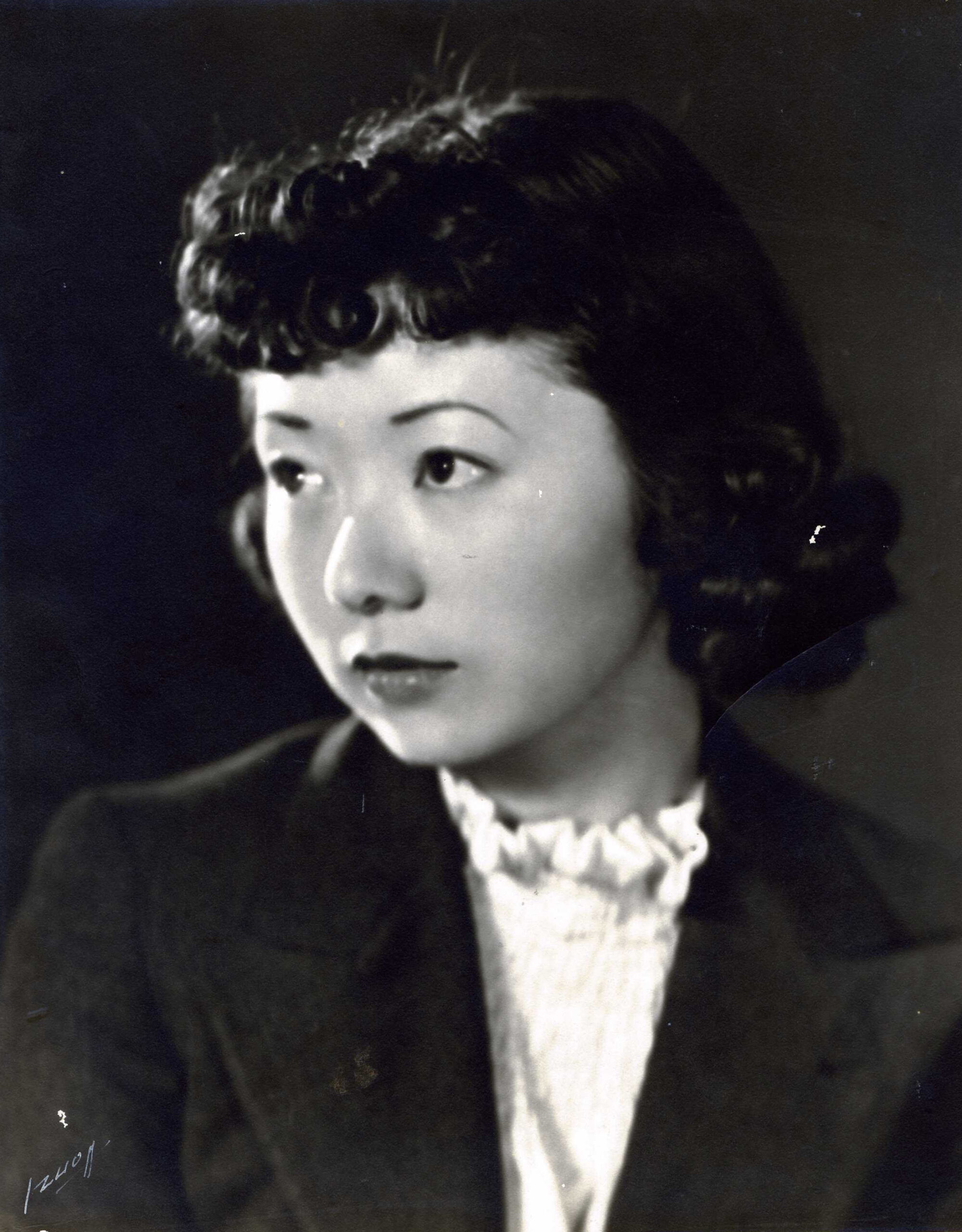
Mary Takata “Taishi” Ikuta
Nisei
Mary Takata Ikuta—who went by “Taishi”—was born in Fresno, CA. She is the older sister of Lily Yuriye Matsumoto and Ben Kazuo Matsumoto.
When Executive Order 9066 was issued, Taishi was in her late 20s. She and her siblings were sent to the Santa Anita Assembly Center before being transferred to Jerome. Upon arriving at the assembly center, Taishi and her sister Lily were separated from their brothers. They lived in horse stables in close proximity with other incarcerees, and they used sheets and blankets to separate their living quarters. “When they went to the public latrines, my aunt would hold sheets up or my mom would hold sheets up for my aunt,” says Taishi’s son Paul. “They lived in Seabiscuit’s stall. That was the high point of their experience.”
When the siblings were later transferred to Jerome, they were separated from a brother whom they later discovered was sent to nearby Rohwer. Taishi shared very little about her time in Jerome aside from the fact that she worked as a secretary at a camp medical facility.
After the war, Taishi separated from her first husband and left for Chicago. There, she married her second husband—Paul’s father—who was a doctor and also incarcerated at Jerome. They opened a medical practice together in Little Tokyo and invested in local real estate properties. “Something that was really important to them was owning real estate,” says Taishi’s grand-daughter Kimberly. “My grandfather had some property [prior to the war], but it was taken away from him during the camps. To be able to own property was a sign that they were American.”
When her husband passed away in 1969, Taishi continued to invest in real estate. “It accelerated after my dad passed,” says Paul. “My mom, on her own, was able to negotiate and build with a contractor another couple more. […] She had enough grit to be able to do that.” Throughout the years, Paul helped maintain his parents’ properties. “She had them until her death, and my dad had them for many, many years after,” says Kimberly. “That was a big part of her life.”
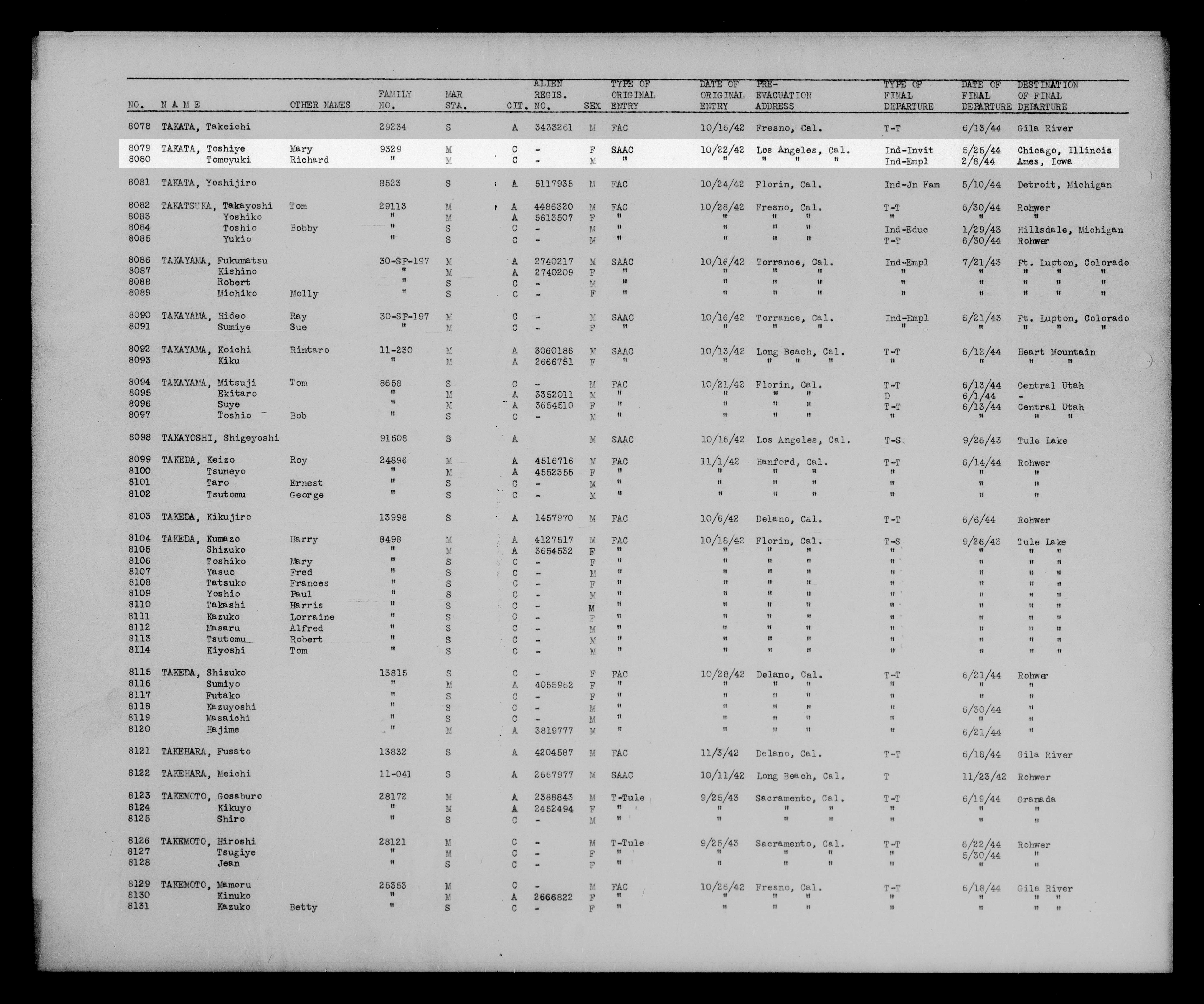
Taishi’s information as it appears in the Final Accountability Roster for Jerome. Courtesy of Densho Encyclopedia.
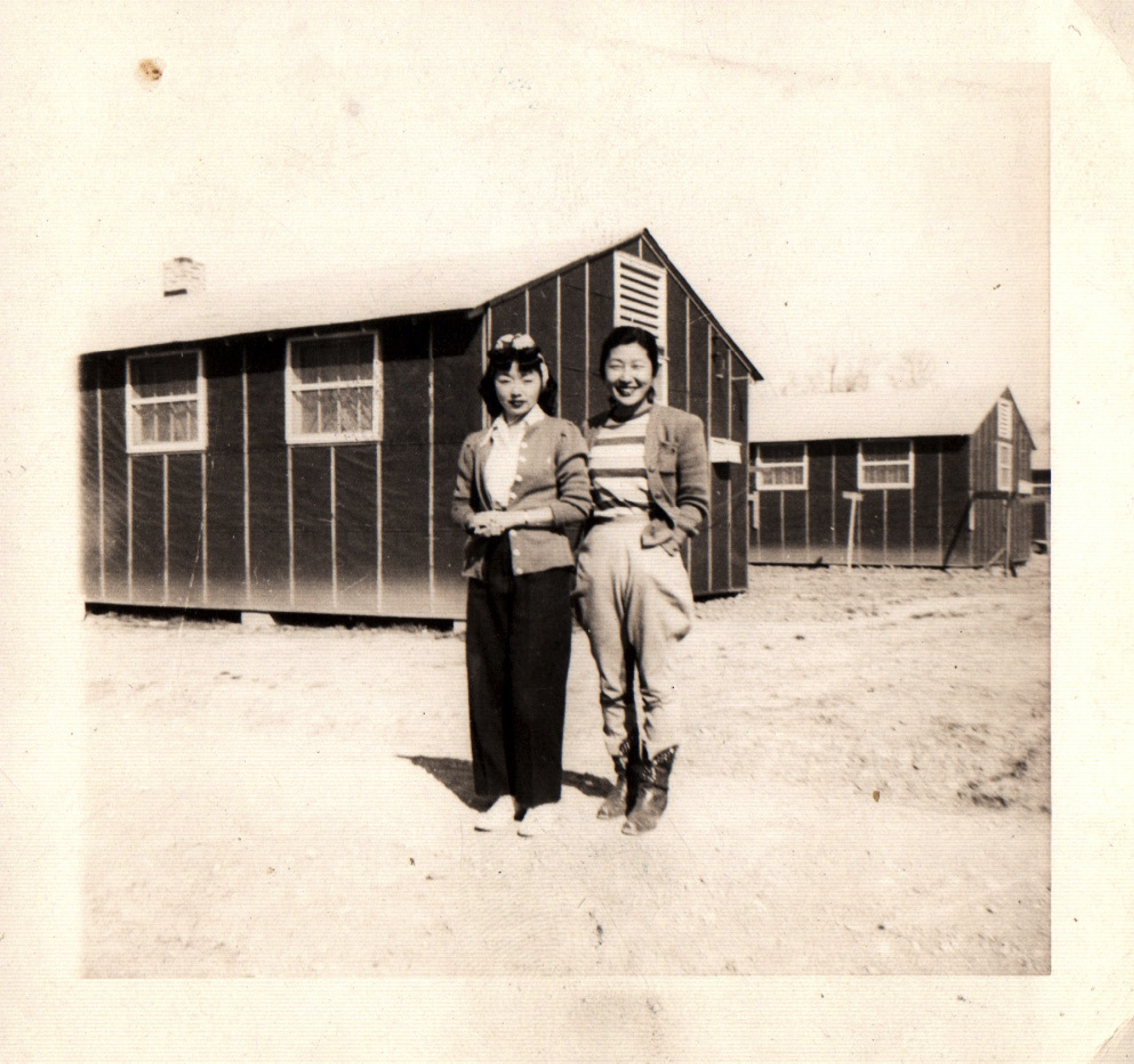
Taishi, left, poses with a friend in front of the barracks while incarcerated in Jerome. Courtesy of the Ikuta Family Collection.
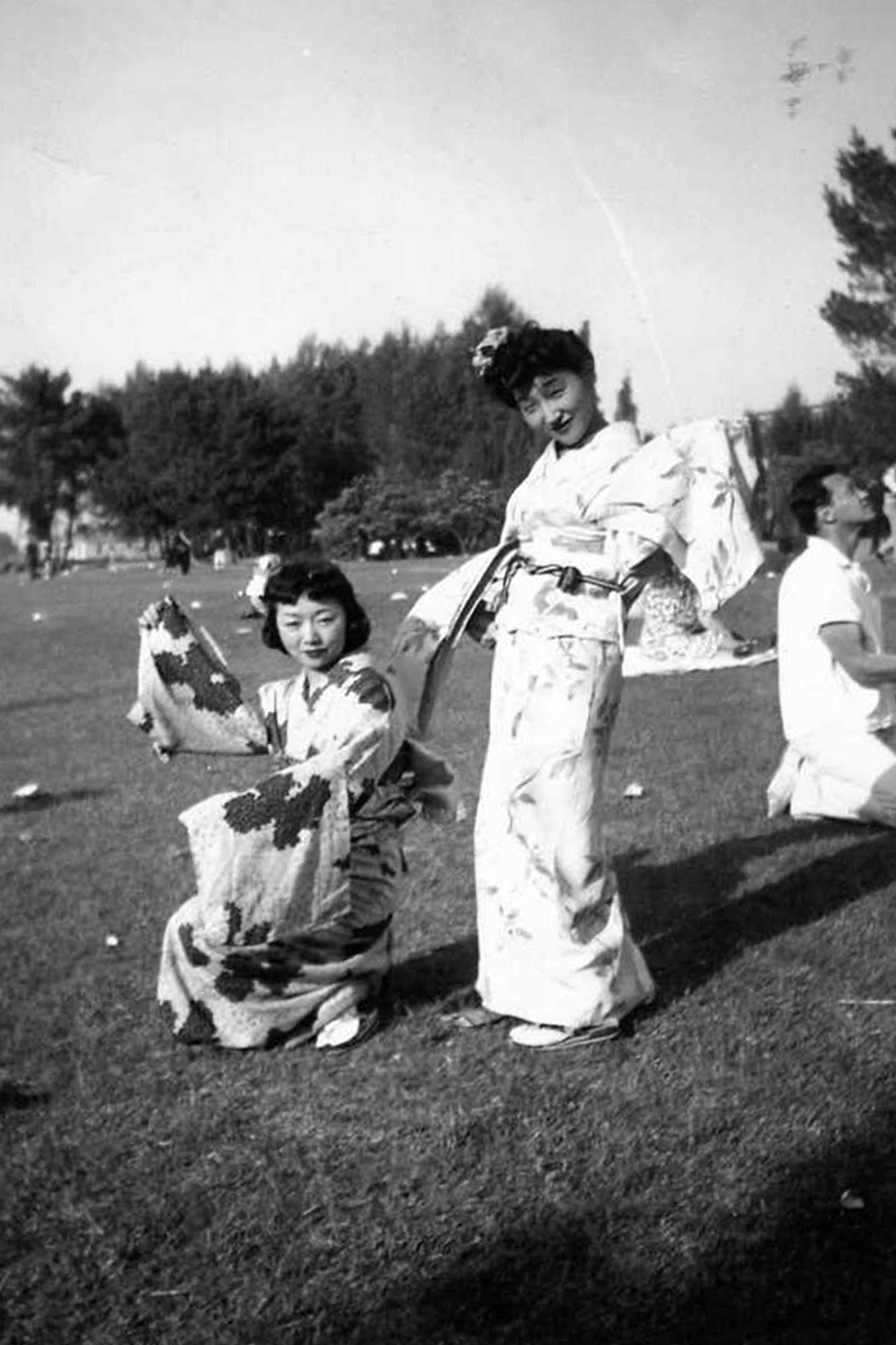
Taishi, left, in a yukata, or a summer kimono, circa 1940. Courtesy of the Ikuta Family Collection.
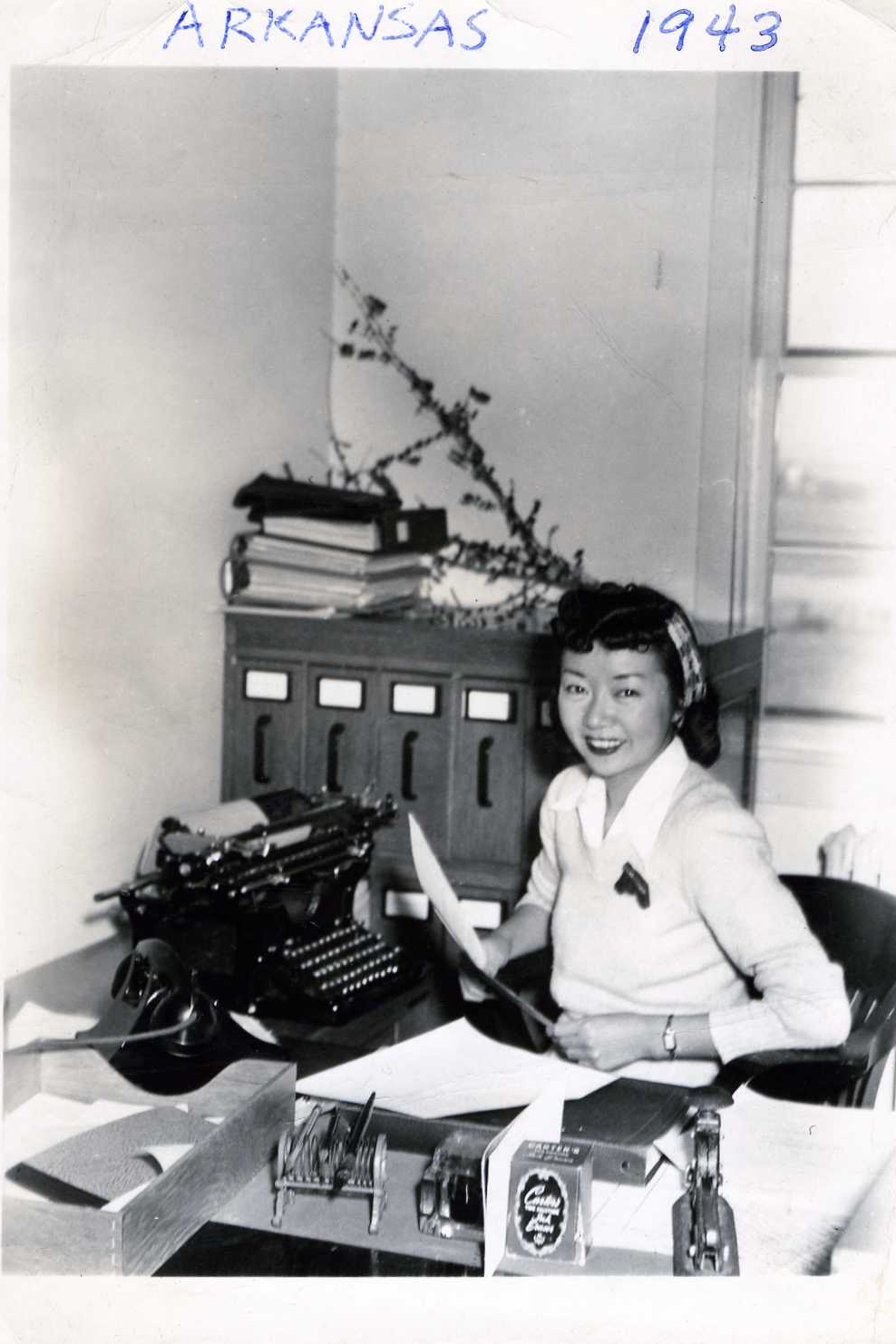
During her incarceration, Taishi worked as a secretary at the camp medical facility. After the war, she and her husband opened their own medical practice in Little Tokyo. Courtesy of the Ikuta Family Collection.
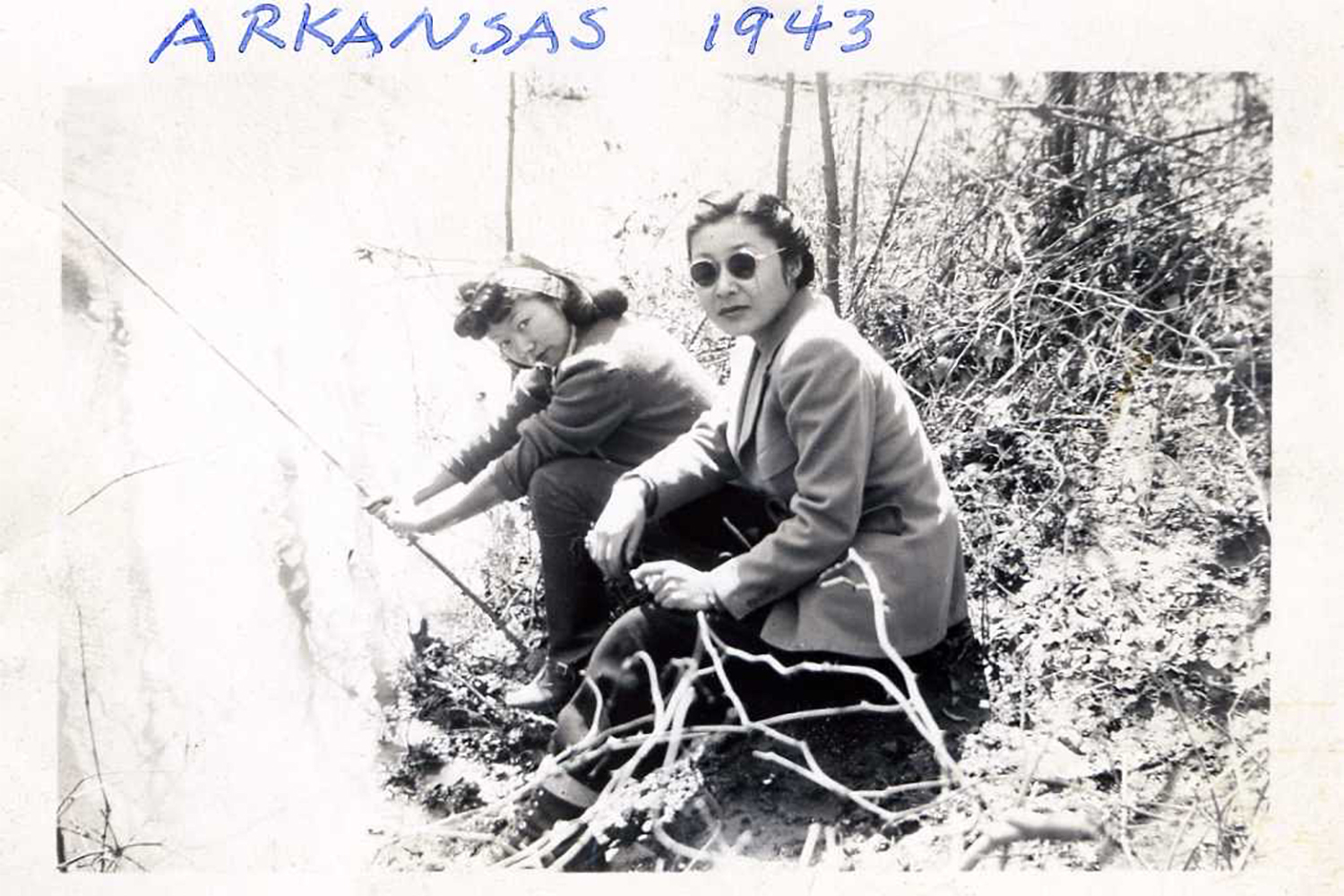
Taishi, left, fishing with her friend in the camps. Taishi was an avid angler and continued to fish after the war. “My mom would go off on half day boats or just by the pier, as a form of decompressing.” says her son Paul. “As to why she was decompressing, I couldn’t tell.” Courtesy of the Ikuta Family Collection.
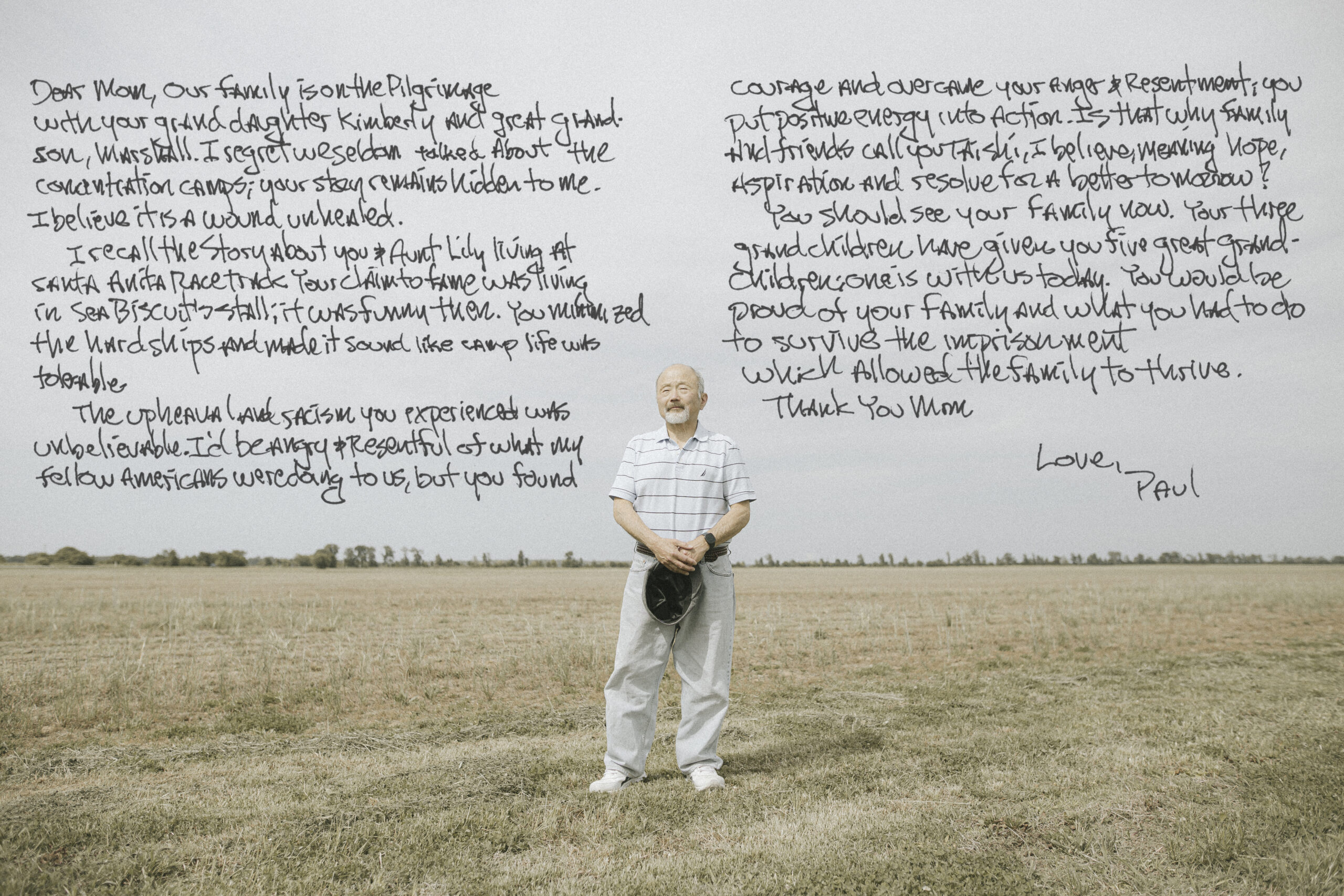
Listen to this portrait.
Paul Toshio Ikuta
Sansei
Paul Toshio Ikuta was born in Pasadena, CA. He is the son of Mary Takata “Taishi” Ikuta.
Growing up, Paul says he had only heard about his mother’s incarceration from other family members. When he read about the camps in a college textbook, he began to ask his mother questions. “Somehow she would change the subject or change the topic,” he says. “There were more pressing things that I had on my mind at that point—classes, life issues. So I didn’t really delve into it again. […] If I were a little more adamant, she might have opened up more. That is something that I regret that I did not do.”
Paul’s father passed away when he was in high school, leaving his mother and he to survive on their real estate properties, including a dilapidated apartment complex they had previously bought in Boyle Heights. “When my dad died, there was no real income,” he says. “So I grew up with apartments. I was a sophomore in high school, and I helped build the apartments.”
Aside from helping with his mother’s properties, Paul also supported her as she grieved her husband’s death. “She was like a ship without a rudder,” he says. His mother immersed herself in religion and real estate, and she remained active in the local medical community by working at the Japanese Hospital of Los Angeles in Boyle Heights. “Many times, [the patients] could not pay money,” he says. “But we did eat really well. [They paid us in] vegetables, fish, chicken—whatever they could do.”
Paul says owning property was important for his family—especially his father, who lost his family’s property in Hawai’i during his incarceration. “After leaving the camps, they wanted to be as secure as possible,” he says. Paul continued to manage his parents’ buildings over the years. “Up until now, I had some properties,” he says. “But I’m divesting myself because the kids don’t want it.”
“When my dad died, there was no real income. So I grew up with apartments. I was a sophomore in high school, and I helped build the apartments.”
— Paul Toshio Ikuta
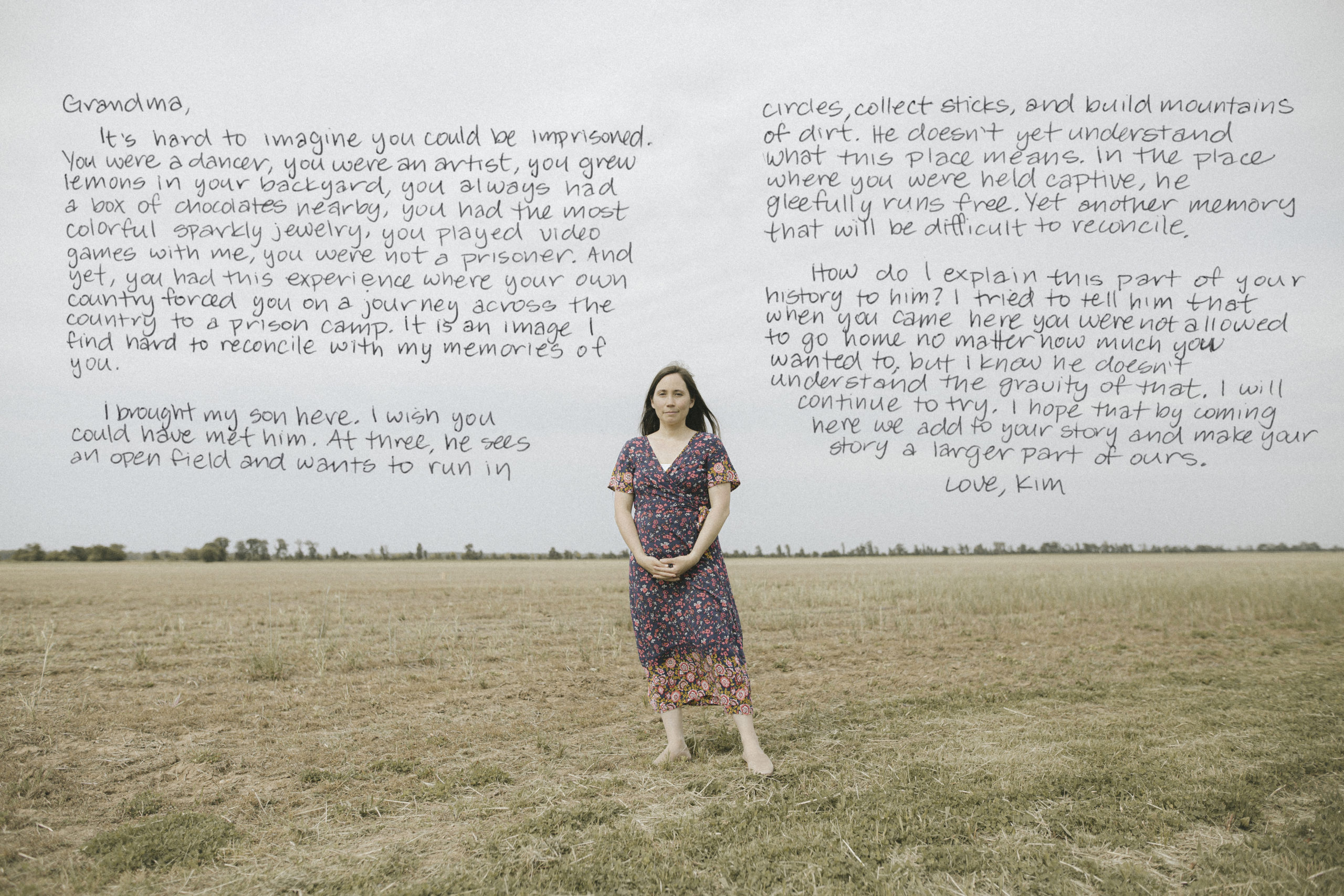
Listen to this portrait.
Kimberly Ikuta Mendoza
Yonsei
Kimberly Ikuta Mendoza was born in Los Angeles. She is the paternal grand-daughter of Mary Takata “Taishi” Ikuta.
Growing up, Kimberly says she rarely heard her grandmother speak about her incarceration. “I only heard about it through her sisters or her brother,” she says. “She didn’t speak Japanese, ever. I remember my dad saying, […] it might be because of the camps.”
Although Kimberly feels close to the Japanese side of her family, she often struggles with her Japanese identity. “I’m half Japanese. Most people—unless they know someone else who’s half Japanese—have no idea that I am Japanese,” she says. “I think sometimes the way that we feel and act is a reflection of how people feel and act around us. Because people […] see me as not Japanese and just white, I think that I often don’t feel as Japanese as I am.”
Kimberly remembers her grandmother was a spirited woman with many creative pursuits. “I remember in her house, she had a whole room dedicated to her watercolor paintings,” she says. “She just carried herself in a way that was very confident. She was very artistic, even after the camps.”
“She didn’t speak Japanese, ever. I remember my dad saying, […] it might be because of the camps.”
— Kimberly Ikuta Mendoza
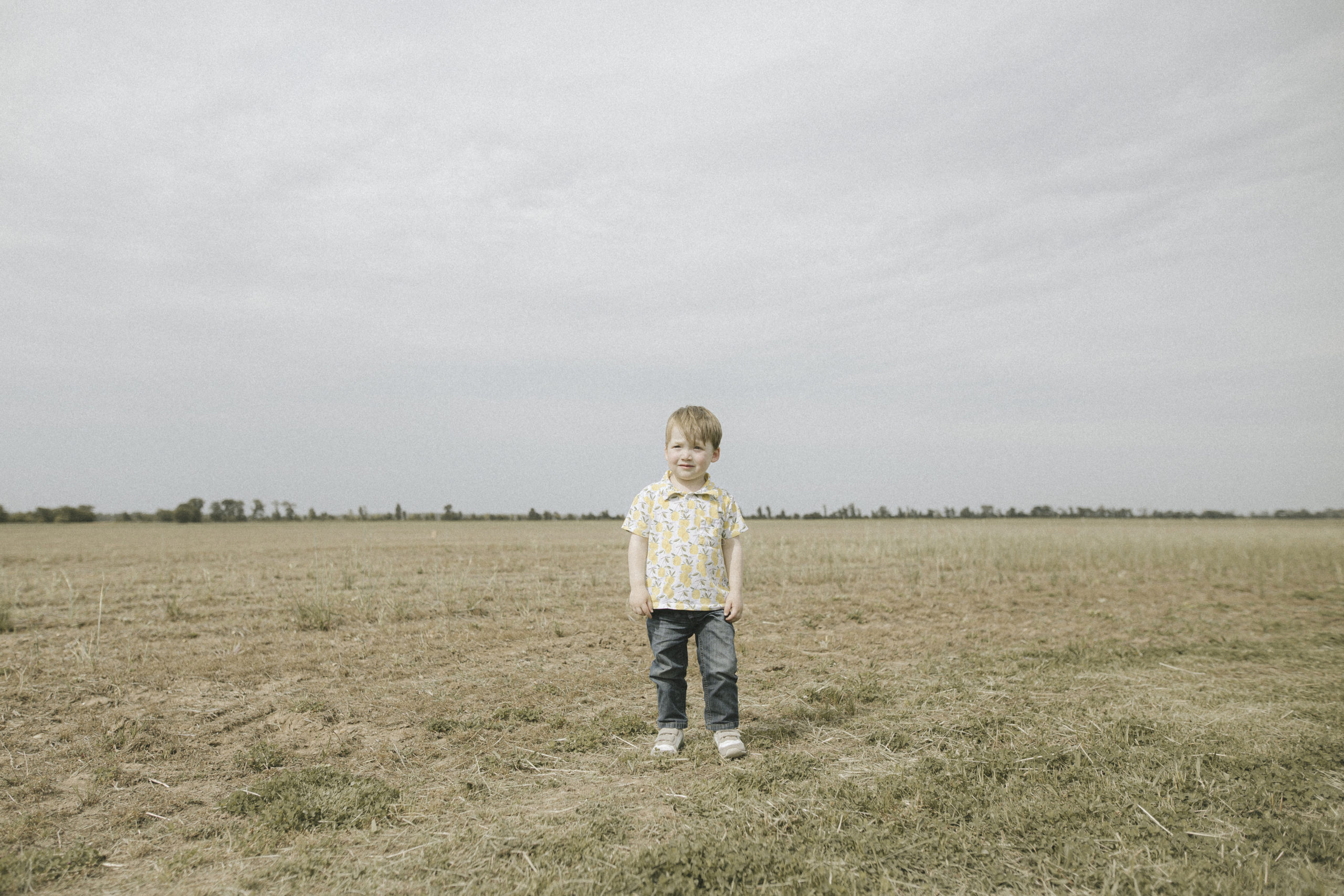
Marshall Mendoza
Gosei
Marshall Mendoza was born in Urbana Champaign, IL. He is the paternal great-grandson of Mary Takata “Taishi” Ikuta. Marshall visited Jerome on a pilgrimage with his mother and grandfather when he was three years old.


